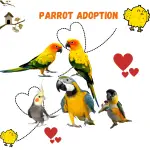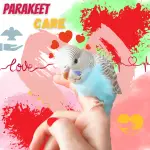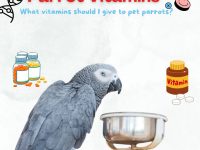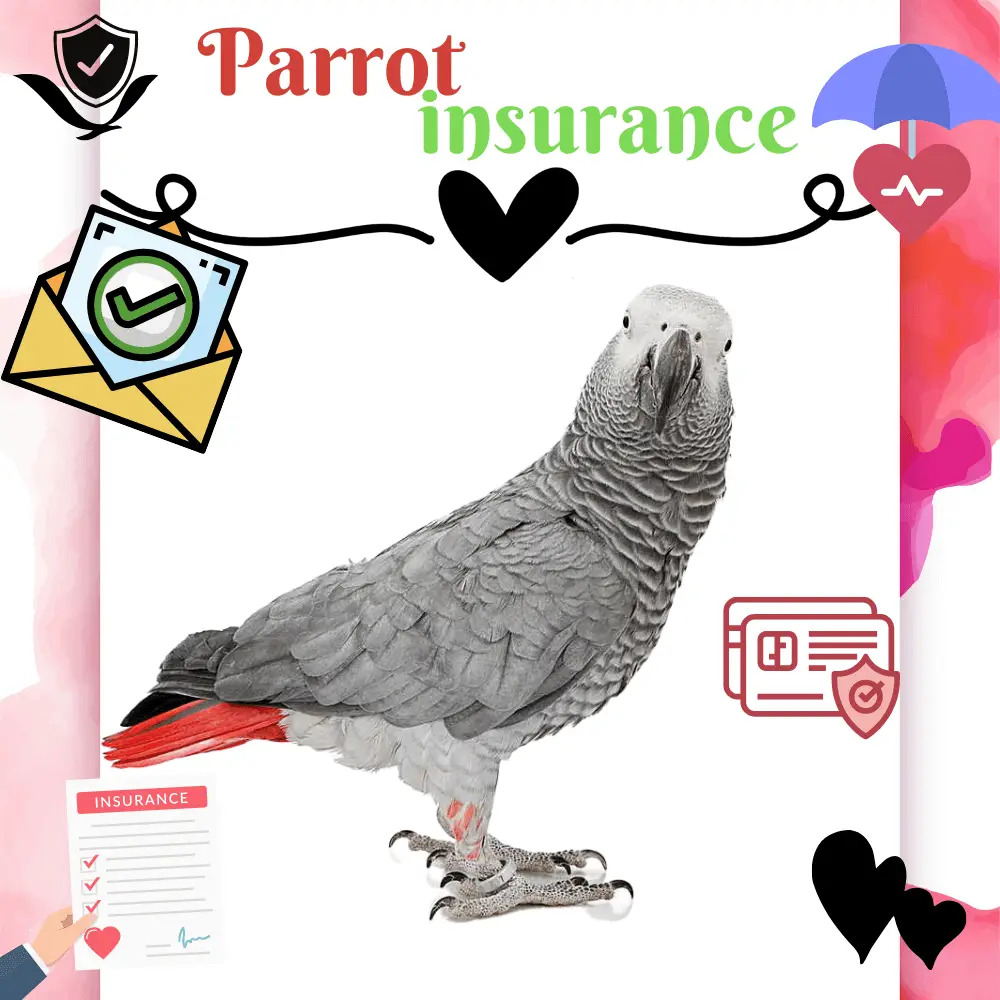
Parrot insurance: You have adopted a parrot and you want to protect it with dedicated health insurance. It is indeed the solution to benefit from partial or total coverage of all or part of the veterinary care that your little companion may need. If the formulas to preserve the NAC are more limited, there are interesting offers to take care of your parrot at a lower cost.
Parrot pet insurance
What are the characteristics of these formulas? How to choose them? Where and how to find them? What price to expect? Let’s take a look at this case.
Why buy insurance
The parrot is an exotic bird that belongs to the Psittacidae family. If it is among the new pets (NAC), it actually includes many species that have a variable life expectancy, from 20 to 50 years, or even more.
Either way, these animals are fragile and susceptible to disease, which is why they need care throughout their lives.
Purchasing parrot insurance can reduce the veterinary costs that the owner of the animal must pay. Indeed, this type of mutual health insurance for animals makes it possible to cover a whole range of care in return for the payment of a contribution.
By opting for a care package, the parrot master can obtain total or partial reimbursement of the care covered by his contract.
You should know that consultations and veterinary care for parrots – as for all NACs – are generally more expensive than for dogs and cats. Indeed, these acts are more expensive because of the specific training that veterinarians had to follow to practice them.
To reduce your expenses, you can therefore choose to take out an insurance plan with more or less coverage, which will allow you to benefit from more or less coverage.
Insurance for parrots
Parrot owners know it well, these exotic animals require specific care which can be very quickly expensive. Indeed, they are fragile and sensitive animals that can fall ill very quickly, from a simple draft, but also fall into a deep depression.
Find the best parrot insurance
A new pet means a lot to its master, which is why its health becomes a primary concern. In the event of an accident, operation, or illness, animal insurance for your parrot allows you to reimburse all or part of the veterinary costs that you may have recourse to throughout the life of your parrot.
Whether it’s a bicephalous parrot, Psittacula, amazon, or even lovebirds, these little companions are just as subject to the risks of life as we are. Taking out pet insurance for your parrot is not mandatory, but it can prove to be a real asset in maintaining your animal’s well-being. All the more sensitive because of their small size, parakeets and parrots can also hurt themselves, or even be affected by health problems, benign or not.
Fractures, conjunctivitis, otitis, digestive disorders… So many hazards that can occur and quickly increase the care budget granted to your bird. Given the amount of the prices charged for consultations, examinations, analyses, treatments, and medications that are particularly suited to your caïque, subscribing to mutual insurance for parrots will allow you to make real savings while helping to maintain good health.
Among the many existing races (Macaw etc.), some are more fragile than others. The African Grey, for example, has a longevity that can exceed 50 years. Adopting such a companion requires being aware of the costs it will incur throughout its existence. And since you become all the more attached when your animal is around for so long, not being able to bear the cost of its health is the last thing you want to happen. This is why it is preferable to allocate a little of your budget to contributions so that you no longer have to hesitate to consult a veterinarian at the slightest question concerning the physical condition of your cockatoo.
Parakeets need a company to live properly. The absence of a congener can cause them to have behavioral problems because of the lack of social interaction. Malabar parakeet, derby, ring-necked, or rose-headed parakeet… There is no shortage of species, and hosting several birds at home represents a substantial budget by multiplying the cost of care.
You have the possibility to define your profile as well as to specify the type of coverage you want for your parrot. With this information, we offer you the contracts adapted to your request to allow you to compare the offers and choose the protection which will seem best to you for your Lori parrot. If in doubt, you can be put in touch with the insurers for free or request quotes to confirm your decision!
Parrot health insurance
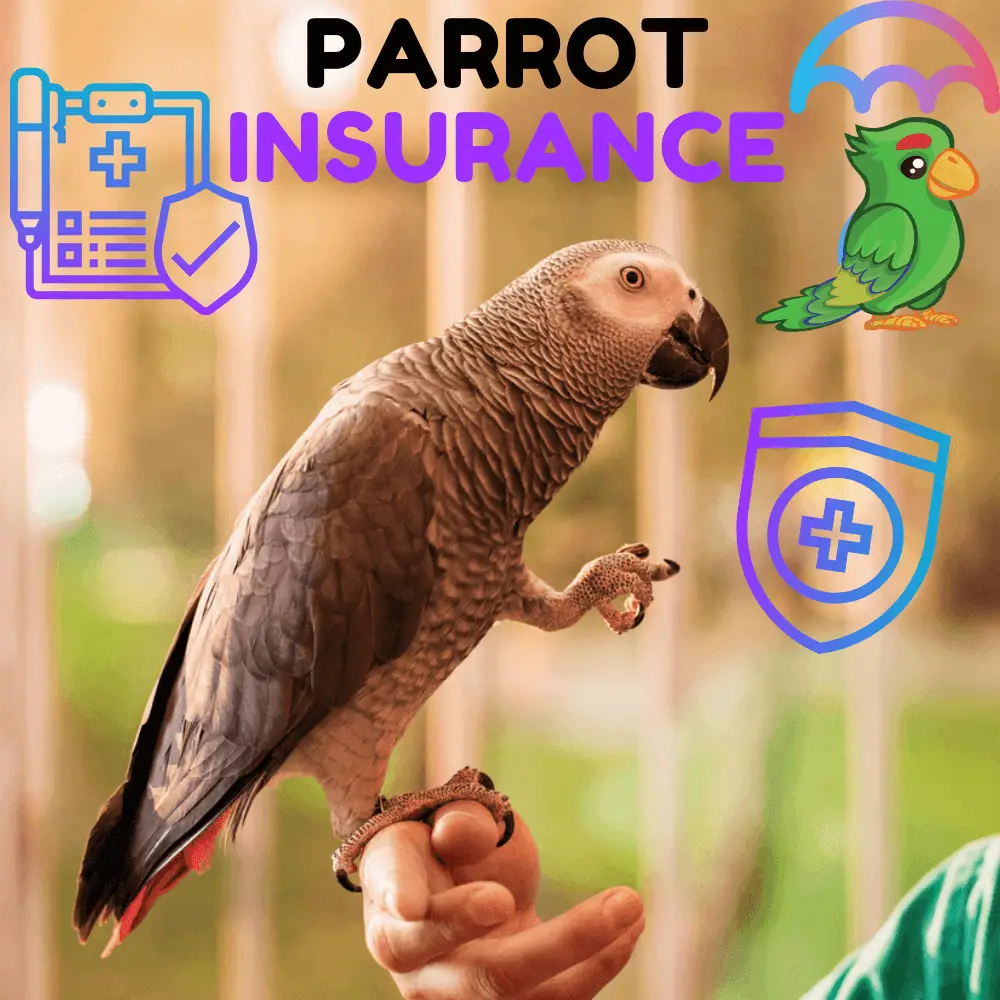
- Depression: hypersensitive and very intelligent, the parrot does not support changes and situations of ill-being in general, to the point of very quickly suffering from stress, anxiety, and depression. The animal then begins to pluck its feathers, it remains motionless, it no longer expresses itself, and it refuses to eat until it lets itself die after a few days to a few months.
- The Pacheco virus: sometimes invisible, this herpes-like virus causes loss of balance, anorexia, and depression in animals, as it attacks the liver, kidneys, spleen, and intestines. However, there is a vaccine that can protect the animal from this disease.
- The beak and feather virus: is very common in young birds, it causes sepsis and great fatigue. The animal may have an abnormal-looking beak and feathers. Unfortunately, there is no cure for the disease, but its effects can be relieved by antibiotic and antifungal treatments. The animal can die after several years.
- Polyomavirus: this virus can cause diarrhea, neurological disorders, and hemorrhages which generally lead to the rapid death of the animal. However, vaccination can help prevent it.
To prevent these risks and take care of a sick, injured, or suffering parrot more calmly, taking out dedicated insurance is the best solution for its owner.
The benefits of parrot health insurance
While parakeets live between 10 and 20 years for most species, the parrot most often lives between 20 and 50 years and you will need to take the utmost care of it throughout its existence. This care includes veterinary costs which can be high.
NAC health insurance covers veterinary costs incurred for the well-being of your parrot. Based on a system similar to that of health insurance for humans, the parrot mutual health insurance intervenes for the partial or total reimbursement of veterinary consultations, medicines, anti-parasitics, x-rays, or even surgical procedures.
The parrot is an intelligent and hypersensitive animal, quite atypical in its functioning. In this sense, he may be prone to depression, anxiety, or even extremely stressed in the face of change.
A draft, a cage that is too small, a lack of attention, a newcomer to the house, and your parrot loses its feathers, squeals, lacks appetite, behaves in an unusual way… It’s time to take him to the vet for a checkup!
The expenses related to the health of your parrot require the intervention of a veterinarian specialized in NAC. In practice, this type of consultation is often more expensive, and taking care of your bird may require therapy extending over long periods of time.
Parrot health and care
To best protect your pet without jeopardizing your finances, it is strongly recommended that you take out dedicated health insurance. It covers this rare and demanding animal to provide it with the care it deserves.
Besides, if your parrot is a talking bird, he could well tell you: “Take out health insurance for me, I’ll probably need it one day!” “. And we have to admit that he would be right because there are several common diseases to which this fascinating bird is exposed.
Viruses in parrots
The parrot, like other Psittacidae, is sensitive to three main viruses which are:
- Pacheco virus: caused by a herpes-like virus, it mainly affects parrots in Central and South America. Once infected, the parrot sees its health decline with a virus that attacks the liver, spleen, kidneys, intestines, etc. If the bird shows mild clinical signs or is asymptomatic, it can be saved with antivirals
- Beak and feather disease: affecting the youngest parakeets and parrots, the bird affected by the virus can develop sepsis, and depression, and have abnormal feathers and beaks. If the bird cannot be cured, we can detect the disease, avoid contamination and ensure decent living conditions with antibiotics and antifungals.
- The polyomavirus: mainly affects parakeets and parrots, but all birds are subject to it. The virus can cause diarrhea, hemorrhage, neurological signs, and of course death, like other parrot viruses
Depression in parrots
Sensitive, a parrot with a bad mind can develop many depressive signs and inflict serious self-mutilation: pulling out feathers, refusing to eat, silence, immobility, and destruction…
There are as many depressive signs as there are parrots. Unfortunately, depression can take your pet away in days or months. Your veterinarian will help you find the cause or causes of depression to get your bird back on its feet.
It is advisable to react as soon as possible to rule out any risk of infectious disease linked to the disorders developed by the parrot.
Parrot insurance: what price should be expected?
If the offers are still limited for parrots, they are developing more and more, and insurers are more and more concerned to stand out from the competition with formulas ever closer to the specific needs of animal owners.
How much is parrot insurance
Parrot health insurance remains a rare insurance. Even if market players are multiplying, they are not legion. Nevertheless, we can distinguish three types of offers for mutual health insurance for parrots:
- Economic formula: for less than 15 euros per month, you benefit from coverage of the main veterinary costs up to 50%
- Intermediate formula: between 15 and 20 euros per month, they allow reimbursement, including in the event of illness, of approximately 70% of health costs
- Complete formula: for 25 euros per month on average, you have access to extended guarantees, high ceilings, and low deductibles
Count in the end between 15 and 30 euros monthly for parrot insurance. In order to make the best choice, use our online comparator to visualize in a few minutes the best offers available for your NAC!
The economic formulas, make it possible to benefit from coverage of the main veterinary care up to 50% in return for a maximum contribution of 15 $ per month;
intermediate formulas, which cover a wider range of veterinary care for reimbursement of up to 70%, in return for a contribution of around 15 to 20$ per month;
The top-of-the-range formulas are the most covering and advantageous, fully or almost reimbursing most veterinary care, for an average monthly contribution of 25$ to 30$.
To protect the health of his little companion, it is, therefore, necessary to plan between 15$ and 30$ of the average budget each month.
The more the formula will be covered, the more it will be expensive, but the more the treatments covered will be, the higher the reimbursement rate will be, the higher the annual reimbursement ceiling will be and the lower the amount of the deductible will be. In addition, it is possible to benefit from other advantages such as coverage in the event of theft or death.
How to choose parrot insurance?
To find the parrot insurance plan that fits your budget and your pet’s needs, we recommend using an online comparator. Of course, you can canvass the brands one by one, but this free and non-binding tool will be your ally to save you precious time and make interesting savings!
Very efficient, the online comparator only requires the completion of a brief questionnaire to offer you, in just a few seconds, several offers that correspond to your needs. It is then up to you to request detailed quotes for those that are likely to interest you.
So take care to compare them with equal guarantees in order to opt for the formula that offers the best value for money for you!
Know that the advantages of this handy tool do not stop there. Indeed, since it allows you to receive several offers simultaneously, you have a strong bargaining power to obtain additional benefits from the insurer that convinces you the most. Savings, additional guarantees, or even more flexible conditions… don’t wait to take advantage of them!

